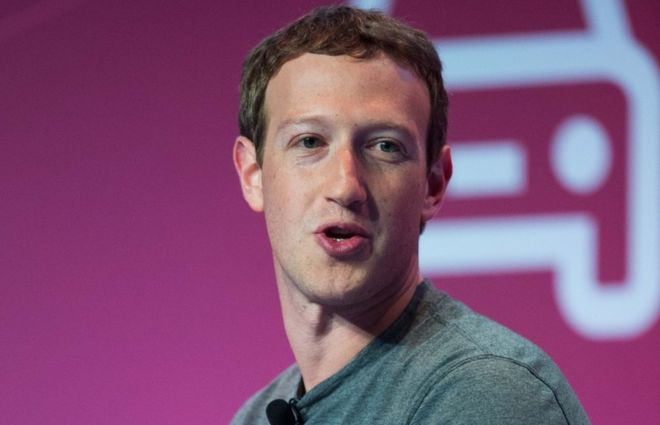Getty Images: Facebook CEO Mark Zuckerberg
"Trump says Facebook is against him. Liberals say we helped Trump" -Mark Zuckerberg
Recently, President Trump has made claims on Twitter that Facebook, along with the New York Times and the Washington Post are "Anti-Trump."
In response to Trump's statement, Facebook's CEO Mark Zuckerberg posted that Facebook is working to make a "platform for all ideas." He stated that both sides of the political spectrum were upset with him and his website for allowing content that they disliked and that liberals accused him of allowing fake news to enable Trump's victory.
Facebook is facing investigation over its influence over the 2016 elections. Just last week, Facebook announced that it will hand over information to Congress about 3,000 advertisements on Facebook that were sold to Russian-linked accounts and contained "problematic advertisements" during and after the 2016 Presidential election.
I honestly do not think that any actions should be held against these "problematic ads." I believe that like we all are guaranteed our rights for freedom of speech, advertisements are just a way to express our views and thus should be protected under the First Amendment of the Constitution. I guess this line becomes blurred when dealing with false and deceptive advertisements, however, I believe that since the purpose of ads are to try to persuade you of something, we as consumers and viewers should be able to detect and be dubious of these ads.
What do you guys think about Trump's accusation and Zuckerberg's response? Do you think that Facebook has favored one side versus the other or are Trump's accusations false?
Furthermore, what do you think Congress will do with the information about the people who posted these "problematic advertisements" during the election period? What actions do you think Congress should take if any at all?

5 comments:
Well, I believe it is no surprise that Trump is once again targeting a social media platform, something he has done in the past. I personally think that Facebook does have some deceptive news and advertisement, but I also think that it goes both ways. Both the extreme left and right post their things, it's just that maybe Trump saw one thing, so now all of Facebook is to blame for it. Even thought I don't agree with these advertisements, I believe Congress should not do anything about it. I believe if they do something about it, they'll use reasoning to take anything off of the Internet.
The internet is a medium of free speech in which opinions should not be regulated by the government. Even if it were true that Facebook was biased against one party and not the other, Congress cannot take action against Facebook; ultimately, content on the internet will be biased, including news, but it cannot be regulated by the government due to freedom of speech. Furthermore, it isn't even necessarily true that Facebook is favoring one party over the other, as both parties are accusing Facebook of favoring the other.
The effect that platforms such as Twitter and Facebook have on society is unprecedented. While one has been able to disseminate information to many for centuries thanks to technology as simple as the printing press, until social media, there were implicit regulations on speech -- printers may refuse to copy something, radio networks may refuse to run an ad. More speech tends to be good, but when said speech is emanating from a foreign power attempting to influence our democracy, I start to question if technology companies actually care about improving society like they say they do.
Beyond more widely distributing speech, social media platforms also allow for the creation of echo chambers, which is antithetical to democratic discourse.
In many cases, technology has shifted the questions from "Can we do it?" to "Should we do it?" Twitter and Facebook have made huge progress, yet they consistently fail to consider whether said progress is truly beneficial. This companies have huge influence, and they ought to keep this in mind when they make decisions.
Based on the current situation, I don't that there is much that can be done by Congress or Facebook to regulate fake news. There is simply too much information to look through, making it infeasible to try to check everything. One possibility would be to change the laws about libel and slander to make proving intent not necessary. This way, people would be discouraged from posting fake and damaging news because they would know that they can be punished for it. However, the best overall method would be to encourage people to do their own research to fact check and find reliable information so that fake news would not be able to circulate or gain popularity in the first place.
Since social media is not considered "press" under the First Amendment and the freedom of press, Congress could take form of action relating to censorship against Facebook. However, they most likely will not take any action because of the lack of evidence surrounding these accusations. Both sides of the argument have accused Facebook of supporting the other side, so finding evidence revealing a specific bias will be difficult. Without this evidence, Congress will not be justified in taking any form of action against Facebook. Facebook is not the only website to contain news that is potentially bias; many blogs and social media sites contain posts that can be bias towards one side or another. It is up to the reader to determine these false facts and make sure that the information they are reading is correct, not the government.
Post a Comment